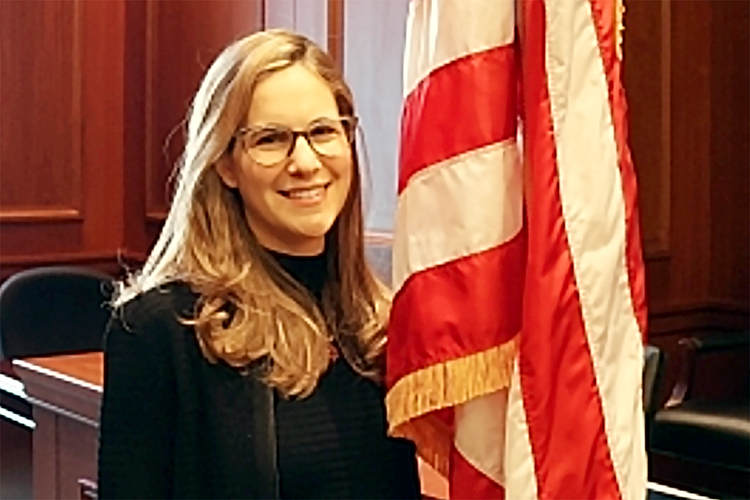Lawyer suspended for charging inflated and fake fees to real estate clients; did everybody do it?

A suspension for a New Jersey lawyer was based on client overcharges and false statements on applications for Superstorm Sandy aid that a badly damaged property was her primary residence. Image from Shutterstock.
Updated: A New Jersey lawyer has been suspended after an audit found that she overcharged clients in real estate transactions by collecting fake fees or fee amounts that were higher than the actual expenses incurred.
In a Nov. 6 order, the New Jersey Supreme Court suspended lawyer Marcy E. Gendel of Montclair, New Jersey, for a year and until further order of the court.
Law.com and the Legal Profession Blog have reports on the decision.
Gendel, who practiced law in Springfield, New Jersey, was admitted to practice in 1977 and had no prior discipline. The suspension was based on the client overcharges and false statements on applications for Superstorm Sandy aid that a badly damaged property was her primary residence.
The audit found that Gendel overcharged her clients for government recording fees, land survey fees and title insurance fees. She also routinely collected and retained fees that she never incurred for bank and overnight fees in real estate closings, according to an April decision by the New Jersey Supreme Court’s disciplinary deview board.
Gendel had said all the other lawyers were charging inflated fees, so she did too.
In 138 real estate transactions from 2011 to 2015, Gendel allegedly overcharged her clients nearly $67,000, according to calculations by the New Jersey Office of Attorney Ethics.
“For at least seven years,” the disciplinary review board said, Gendel “engaged in a carefully constructed scheme to bleed clients of funds to which she was not entitled.”
The audit was ordered after Gendel allegedly blurted out during a real estate closing that she had come up with a way to take money from clients, and she was surprised that no one else had thought of it. Gendel allegedly said senior citizen clients could be charged realty transfer fees without the discount to which they were entitled. Then the lawyer could pay the reduced fee and keep the difference. She allegedly estimated that the scheme could allow an attorney to keep reap an extra $50,000 to $100,000 per year.
Gendel made the comment at a closing in front of her client, the listing realtor and another lawyer—who happened to be the ethics committee secretary for East Morris and Sussex counties. The other lawyer sent a letter to the New Jersey Office of Attorney Ethics about the conversation.
Gendel claimed that she made the comment to express frustration that each county in New Jersey had its own system for recording property deeds, which would make it easy for people to steal for years without detection. She was making the point that a new e-recording system would provide more checks and balances.
The audit showed that Gendel did not implement the scheme that she described.
After hearing from the New Jersey Office of Attorney Ethics, Gendel began reimbursing her clients.
She told the office that she began estimating recording fees when the exact amount was unknown before a Housing and Urban Development statement was prepared. She began charging a flat amount to record deeds because she saw everyone else doing it, and it made her bookkeeping process simpler. As for the bank fees, she said her charge reflected time spent at the bank. And the excess land survey fees were intended to reimburse the time that she spent reviewing the documents.
She said at the time, she was unaware of the New Jersey Supreme Court’s 2016 decision in In re Fortunato, in which the New Jersey Supreme Court ordered a lawyer to return excess recording costs that he had charged to clients in closings.
The disciplinary review board said Gendel’s misconduct was “far more egregious than that of the attorneys in Fortunato and its progeny because she overcharged clients for services that were clearly known ahead of a property’s closing.”
Gendel “systematically inflated multiple charges and retained the differences for herself,” the disciplinary review board said. She “took no responsibility for her actions and instead insisted she engaged in the misconduct because everyone else was doing it.”
Gendel’s misconduct in real estate matters “is particularly egregious,” the disciplinary review board said, because she was “an experienced practitioner who frequently lectured on the topic of real estate law.” She even testified that she helped rewrite the CLE book for real estate law sometime between 2015 and 2017.
The one-year suspension imposed by the New Jersey Supreme Court was lower than a split recommendation by the disciplinary review board. Four members recommended disbarment, and four others recommended a two-year suspension. But a special ethics master had recommended only a three-month suspension.
Gendel told the ABA Journal that her conversation at the real estate closing was mischaracterized. She actually says she had found a loophole in the system, and it had to be modified.
“I never did it,” she says.
Realizing that the impact of her actions has been “a heartbreaking thing,” Gendel says, she wants to make sure “that I am never the cause of any harm to anyone.”
“I did something that I should not have done, and I am going to appreciate the bar for all it has given me, and hopefully it will be a move forward to doing only the right things,” Gendel says. “I certainly have no intention of ever by mistake or inadvertently or intentionally doing anything to harm anybody.”
Asked whether she plans to return to law practice, Gendel says, “That will be up to the bar, won’t it?”
She adds that she would seek reinstatement.
“I’m sure I will want to end my career on a positive note with being reinstated to the bar, which has been my entire life,” she says.
Gendel’s lawyer, Marc Garfinkle, told the Journal that “it was custom and practice” in a lot of law offices to charge flat fees, and this is how Gendel learned. Lawyers were still charging such fees, even after the Fortunato decision, he says.
Gendel is actually a “do-gooder” who is a philanthropist in her private life, Garfinkle says. She has taught national CLE classes and is a resource for lawyers who have tough questions.
“I was disappointed in the decision to suspend her, but I was delighted that the supreme court chose not to disbar her,” Garfinkle says.
Garfinkle thought that there was no risk to the public and “no downside” to allowing Gendel to continue to practice law.
“And because she’s been such a good citizen, I thought there was a pretty good upside,” he says.
Updated Nov. 13 at 1:40 p.m. to include comments from Marc Garfinkle.
Write a letter to the editor, share a story tip or update, or report an error.


